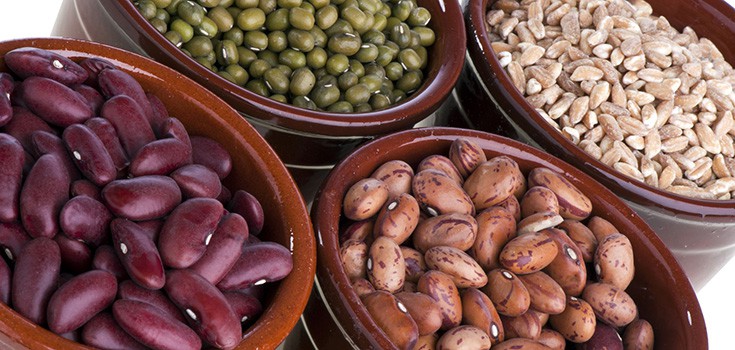3 Studies Linking Beans with Cancer Prevention

Pulses, legumes, beans—they have far more in common than the production of gas within your digestive system. They are both rich sources of protein and fiber, and contain valuable antioxidants. It’s these characteristics that are tied to the cancer-preventing properties of the foods and that should motivate you to add more to your diet. Numerous studies have linked beans and legumes with cancer prevention.
How Beans Fight Cancer
Scientists with University College London found that beans actually contain an anti-cancer compound that blocks an enzyme involved in tumor growth.
As BBC reported when the study first came out, scientists had been researching cancer treatment options that targeted the enzyme phosphoinositide 3-kinase directly but had difficulty until they found the natural compound in beans to do the work for them. Not only did the compound known as inositol pentakisphosphate block tumor growth, it enhanced other treatment options.
A more recent study from Loma Linda University found dramatic reductions in cancer risk that coincide with modest increases in bean consumption. Those study subjects that ate pulses or lentils at least three times each week were able to reduce their risk of colon polyps by one-third. Colon polyps are small growths that can lead to cancer.
Another study from the university found that individuals consuming beans 2+ times a week had a 42% reduced risk of colon cancer than those eating beans less than once per week.
Increased bean consumption is associated with a lower risk of colon cancer overall, with research showing that the fiber in beans impact colon cancer risk more than any other source of fiber.
In addition to the high fiber content of beans, they also contain antioxidant compounds that work to fight free radicals which can lead to oxidative damage on a cellular level, including cancer.
While vegetarians have been reaping the benefits of beans for some time, many using them as one of their primary sources of protein, not everyone is experiencing what beans have to offer. (Beans can also help reduce blood pressure). As this research shows, just three servings of beans and legumes a week could significantly decrease your cancer risk.
Here are some bean-eating tips:
- Skip canned beans whenever possible and opt for cooking dry beans instead.
- Soak harder beans (chickpeas, kidney beans, black beans, etc.) for several hours to shorten cooking time.
- Use leftover beans as the foundation of a great veggie burger.
In addition to eating beans for their cancer-prevention benefits, beans are also a good source of B-vitamins, can help regulate digestion, and work to regulate blood sugar.
Additional Sources:

God said, See, I have given you every plant yielding seed that is on the face of all the land and every tree with seed in its fruit; you shall have them for food. (Genesis 1:29)